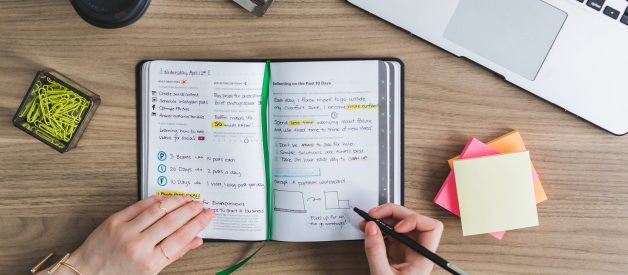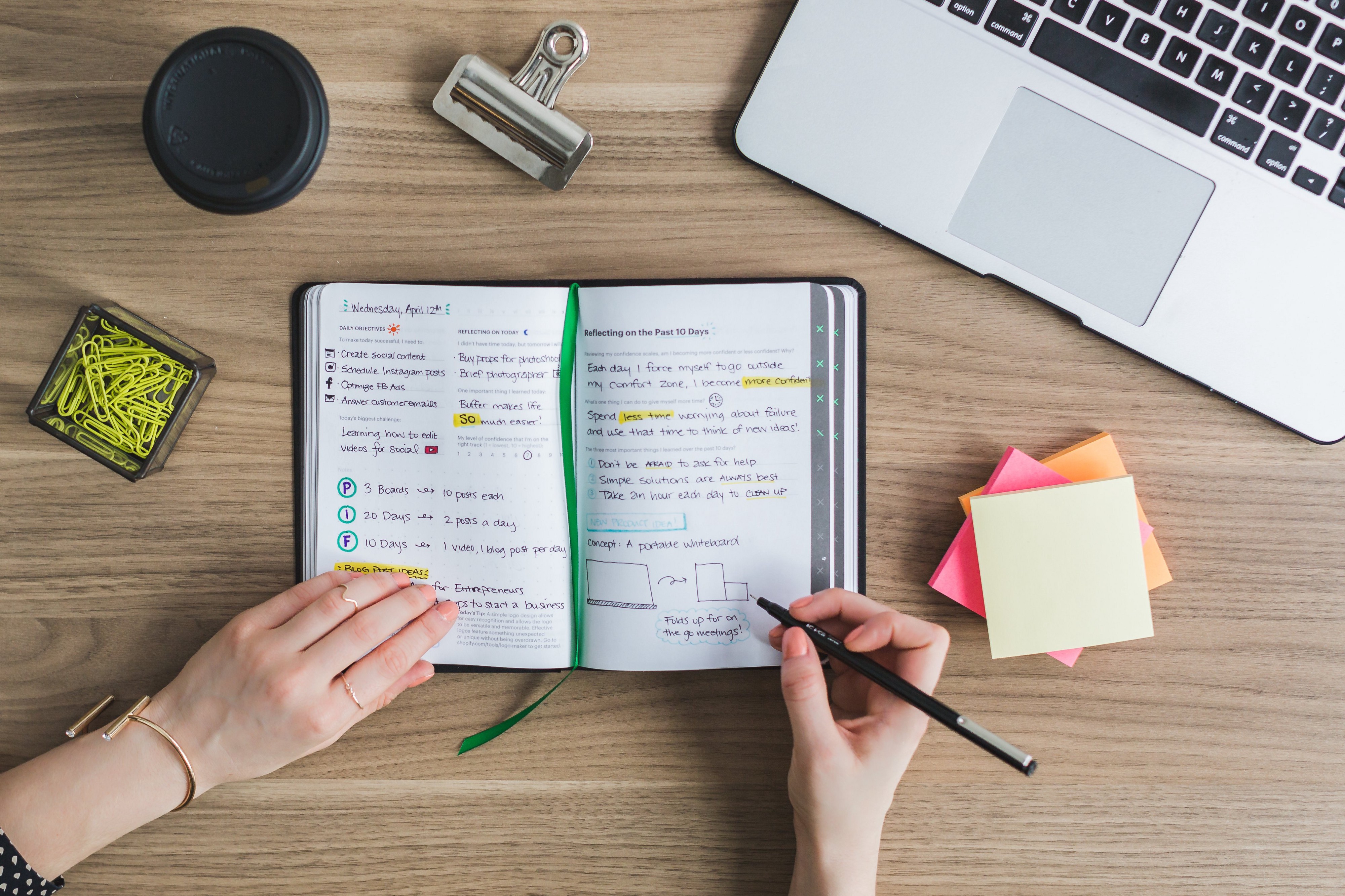 https://stocksnap.io/photo/COBVG57L52
https://stocksnap.io/photo/COBVG57L52
Ever wondered why history?s great minds including Isaac Newton, Abraham Lincoln, Andy Warhol, Leonardo Da Vinci, Marcus Aurelius, Charles Darwin, Winston Churchill, Benjamin Franklin, Ernest Hemingway, George Bernard Shaw and Maya Angelou would spend so much of their precious time writing things that will never be seen by another soul?
Jim Rohn says, ?If you?re serious about becoming a wealthy, powerful, sophisticated, healthy, influential, cultured, and unique individual, keep a journal.?
Many famous creatives, writers, innovators and original thinkers of our generation keep journals? for many, it is a creative necessity, for others, a place for exploration, and for some an art form in and of itself.
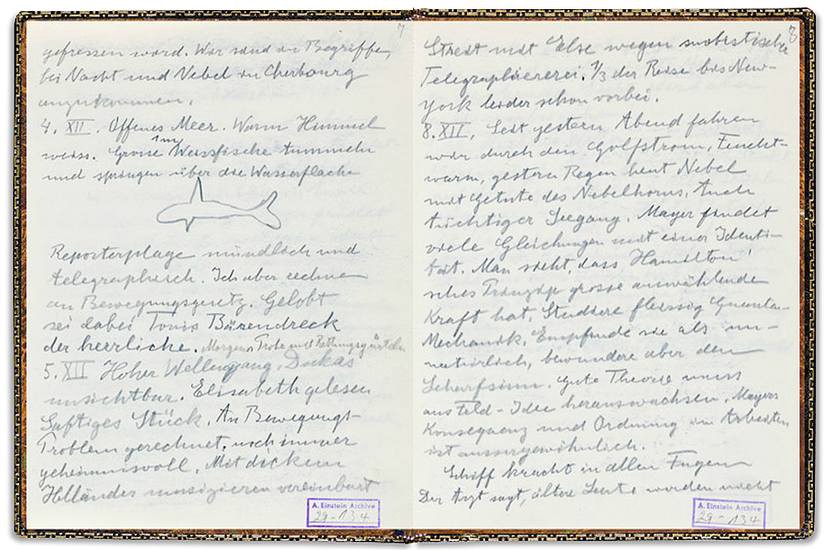 Albert Einstein?s travel diary to the United States recorded his experiences abroad from November 1930 to June 1931. (Photo: The Hebrew University of Jerusalem)
Albert Einstein?s travel diary to the United States recorded his experiences abroad from November 1930 to June 1931. (Photo: The Hebrew University of Jerusalem)
But you don?t have to be creative, scientist or an innovator for this practice to be worthwhile.
Journaling helps you prioritize, clarify thinking, and accomplish your most important tasks, over urgent busy work.
Thinking in writing has this magical quality of clarifying your thoughts.
Tim Ferriss calls journaling the deloading phase in life. He explains, ?I use it as a tool to clarify my thinking and goals, much as Kevin Kelly (one of my favorite humans) does. The paper is like a photography darkroom for my mind.?
Get used to the pen again!
Reflective writing has also been shown to improve decision-making and critical thinking in a number of medical professions.
Michael Hyatt says ?What happens to us is not as important as the meaning we assign to it. Journaling helps sort this out.?
Journals give you a record of the progress you?ve made toward your goals to keep you motivated in the long slog of actually reaching them.
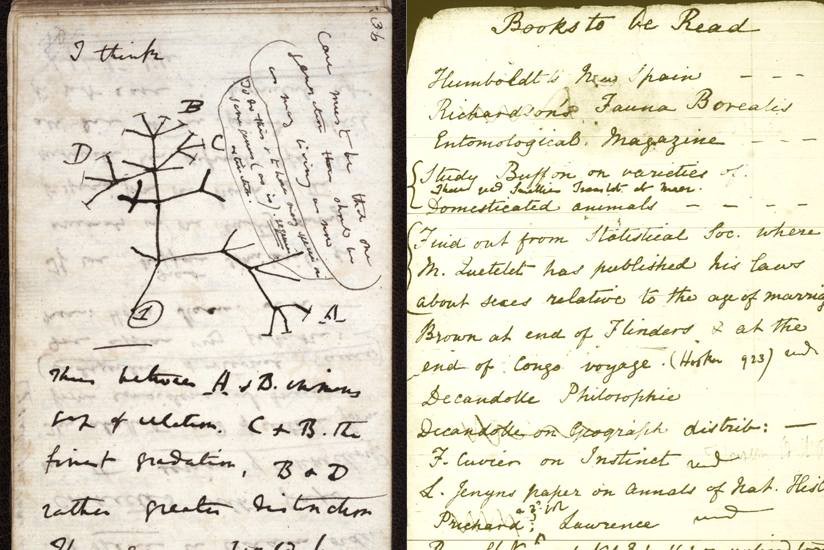 Charles Darwin kept numerous notebooks to record his discoveries and thoughts on everything from his first sketch of an evolutionary tree (left) to important books to read (right). (Photo: Public Domain)
Charles Darwin kept numerous notebooks to record his discoveries and thoughts on everything from his first sketch of an evolutionary tree (left) to important books to read (right). (Photo: Public Domain)
?As part of your morning creative burst, use your journal to review and hone your daily to-do list. Review and hone your life vision and big picture goals? says Benjamin Hardy.
Numerous studies (of the scientifically rigorous variety) have shown that personal writing can help people better cope with stressful events, relieve anxiety, boost immune cell activity
Judy Willis MD, a neurologist, and former classroom teacher explains, ?The practice of writing can enhance the brain?s intake, processing, retaining, and retrieving of information? it promotes the brain?s attentive focus ? boosts long-term memory, illuminates patterns, gives the brain time for reflection, and when well-guided, is a source of conceptual development and stimulus of the brain?s highest cognition.?
What you write, you control. You don?t have to spend your whole morning writing, but the only rule is to write continuously. Be consistent to make the most of it.
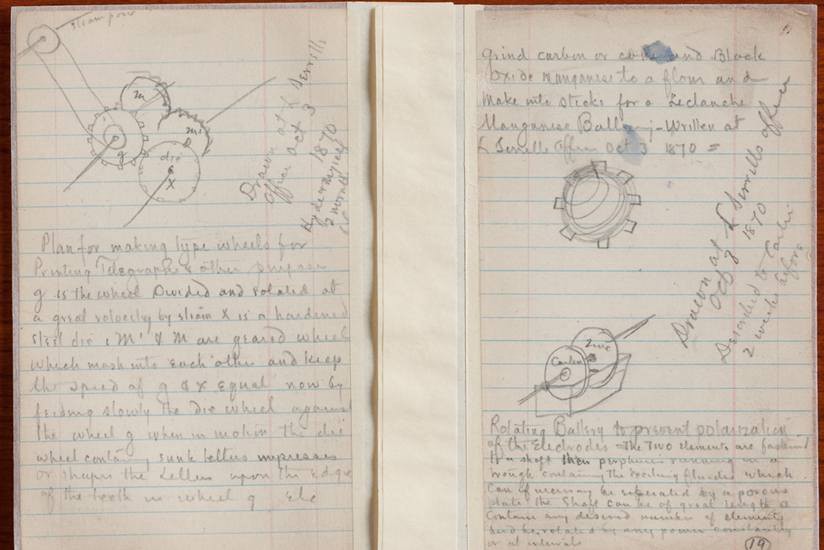 Throughout his life, inventor Thomas Edison jotted down ideas and thoughts in personal journals. (Photo: Edison and the Rise of Innovation)
Throughout his life, inventor Thomas Edison jotted down ideas and thoughts in personal journals. (Photo: Edison and the Rise of Innovation)
An optimal approach to start Journaling
Start each morning by identifying tasks, goals for the day.
Only write a few bullet points (2/3) to make it easier to start and make progress. You can mix personal and work stuff together.
By keeping each day?s entry short and simple, you are making it so easy to journal without excuses.
At the end of each day, look back at what you accomplished, what you learned, what you want to follow-up on tomorrow, and what you want to pursue tomorrow.
Start small. Make micro-commitment each day to get started.
Don?t make a huge commitment. Try it for 30 days. Spend just 5- 10 minutes a day reflecting in your journal. When the 30 days are up, go back and review what you?ve learned and the progress you?ve made. Then you can decide if you want to continue journaling.
Aim for 5 to 10 minutes of uninterrupted time to do your journaling, ideally the same time every day.
What you write, draw or sketch is completely up to you.
Just sit and write.
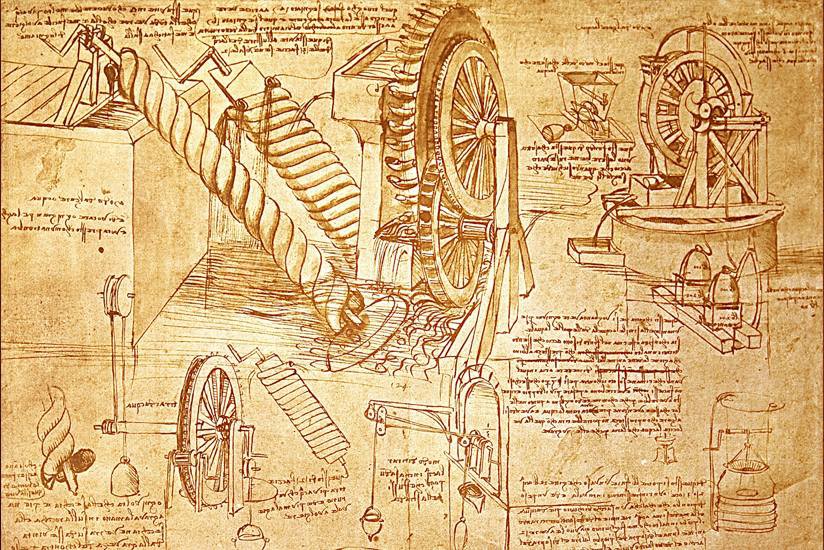 Over 7,000 pages of Leonardo da Vinci?s drawings, ideas, and natural inspirations have been preserved. (Photo: The British Library)
Over 7,000 pages of Leonardo da Vinci?s drawings, ideas, and natural inspirations have been preserved. (Photo: The British Library)
Mind-map, list goals, outline your vision, doodle, draw, sketch, make a gratitude list, list your short-term and long-term, write down everything you are curious about, list your passion projects, make a daily entry of needs to be done, reflect on your accomplishments, etc.
Just get all the ideas out on paper, and push yourself to see if more are hanging around in the background of your mind.
Come back to them later to see if anything jumps out at you.
As part of your morning and post-work journaling sessions, be sure to write about everything you are grateful for. Gratitude journaling is a scientifically proven way to overcome several psychological challenges.
It will change your entire life orientation from scarcity to abundance.
?Writing in a journal each day, with a structured, strategic process allows you to direct your focus to what you did accomplish, what you?re grateful for, and what you?re committed to doing better tomorrow. Thus, you more deeply enjoy your journey each day, feel good about any forward progress you made, and use a heightened level of clarity to accelerate your results,? says Hal Elrod, author of ?The Miracle Morning?.
According to Dr. James Pennebaker, an expert in the field of expressive writing, to get the best results from journaling, it was recommended that you:
- Forget about grammar/spelling when you write.
- Be honest and authentic (write like no one else is going to read it).
- Write by hand for better memory recall.
- Adopt cursive writing to get your thoughts out faster.
Journaling alone won?t boost your productivity. But when you combine action with reflection you?ll take better actions over time.
?Writing accesses you?re the left hemisphere of the brain, which is analytical and rational,? says Maud Purcell, a psychotherapist and journaling expert. ?While your left brain is occupied, your right brain is free to do what it does best, i.e. create, intuit and feel. In this way, writing removes mental blocks and allows us to use more of our brainpower to better understand ourselves and the world around us.?
Journaling is not a commonplace habit, it is a keystone habit. Keystone habits affect how you work, eat, play, live, spend, and communicate.
As Charles Duhigg, author of ?The Power of Habit? says, ?..they encourage change by creating structures that help other habits to flourish.? A minor change in one aspect of your life can trigger so many other positive changes.
Journaling is a practical and accessible way to stay connected to your inner self, your body, your dreams and your purpose in life.
Before you go?
If you enjoyed this post, you will love Postanly Weekly (my free digest of the best productivity, career and self-improvement posts). Subscribe and get a free copy of my new eBook, ?The Power of One Percent Better: Small Gains, Maximum Results?. Join 21,000+ readers.
